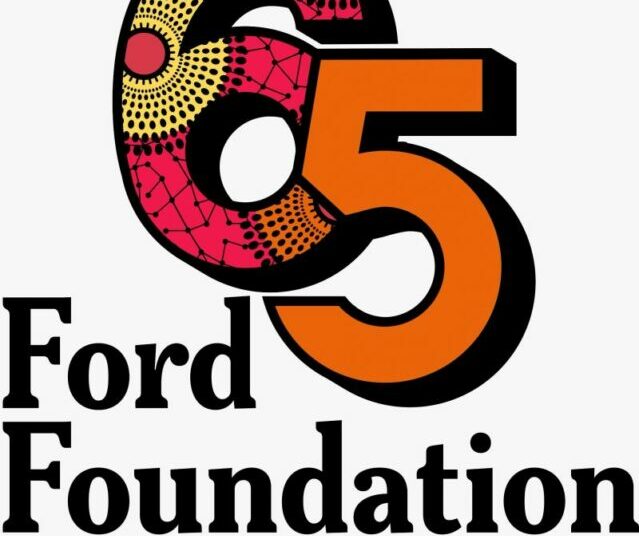The Ford Foundation Office for West Africa (FFOWA) has marked 65 years of building a legacy, promoting purpose, and advancing social justice across Nigeria and the African continent.
The remarkable celebration marked the Foundation’s six-and-a-half decades of advancing social justice, equality, and inclusive development across West Africa in Abuja yesterday, on the theme: “Social Justice & the Quest for Resilience in Africa.”
The event brought together grantees, government representatives, partners, alumni, and friends of the Foundation to honour a shared legacy of courage, collaboration, and commitment to advancing human dignity across West Africa.
Gladys Eleojo, Program Officer at TechHer Foundation, described the anniversary as “a profound moment of gratitude and recommitment.”
“This milestone belongs not to one institution, but to a shared community of change-makers across West Africa and beyond. Since 1960, our mission has remained clear: to stand with those building just and inclusive societies.
“Our legacy is not defined by numbers alone, but by the spirit of trust, courage, and partnership that has underpinned every grant and collaboration,” she stated.
She further explained that documenting progress in collaboration with the Ford Foundation was essential to strengthening the social justice ecosystem in Nigeria.
She added, “I think having an organisation as big as the Ford Foundation stand behind us, stand behind our work, and affirm that they believe in us—and in our quest to ensure that women and girls can access, understand, and use technology safely and meaningfully—has made a world of difference.
“It has enabled us to grow, experiment, test new ideas, and build community with other civil society organisations. That is really the crux of our event today: to reflect on our work and explore how we can advance it in solidarity, in community, using the limited resources we have to create impact and ensure better outcomes for women and girls.”
In her remarks, Nigerian activist and co-convener of the Bring Back Our Girls campaign, Aisha Yesufu, noted that faith and cultural leaders, as well as institutions, have a significant role to play in shaping the terrain of social justice in Nigeria and globally.
“The faith of individuals is at the core of their existence. People are driven by what they believe in. Their convictions shape the way they see the world and perceive others in society. If people are to become conscious of social justice, then their faith must extend beyond the four walls of their religious institutions—whether a mosque, church, or a traditional ruler’s palace.
“It must shift into their everyday living. They must begin to amplify these values and apply them in their communities.”
She further illustrated how social justice issues manifest in everyday family life:
“For instance, when working with families, we confront the fact that many women feel oppressed in the bedroom. This is not an issue people usually discuss, yet women frequently say, ‘My needs are not met; my husband does not consider me.’
We have included a curriculum on sex and intimacy in our retreats to change the way people think—not just in church, but in their homes. This is why faith and cultural leaders must help people apply what they learn in their daily lives.”
Yesufu stressed that communities must take responsibility for what happens within them. A community has no identity outside its individuals. If every individual takes responsibility for what happens in their community, they can shape lasting change that can be passed to the next generation.”
Similarly, the Executive Director of TechHer NG, Chioma Agwuegbo, emphasised the central role of technology in advancing social justice.
“Technology transforms how we work, live, play, and transact. If women and girls are welcomed and can use technology safely and meaningfully, we advance faster as a community, as a nation, and globally.
In a country like Nigeria, where we lack laws that protect women and girls, and where perpetrators are often not punished, many women come online, try to engage in public spaces, and then withdraw.
Our work is to ensure that women and girls are not only informed about what technology can offer but also educated on the vulnerabilities they face online—vulnerabilities that persist regardless of education level, religion, region, sexuality, or marital status.”
Meanwhile, a lecturer in Islamic Studies at the University of Abuja, Babamole Murtadah, called on all Nigerians—regardless of their religion or tribe—to unite and build the prosperous nation that God has given them.
He emphasised that Nigeria belongs to every citizen, Christian or Muslim, and urged collective unity and commitment to national transformation.





